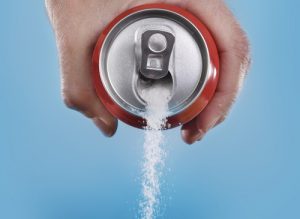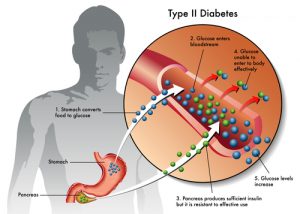3 Reasons Why We Need to Limit Our Sugar Intake

You’ve definitely heard it before – too much sugar isn’t good for you. Yet for some reason cutting down and monitoring your sugar intake can require a lot of self-discipline. While most of us know that too much sugar isn’t good for us, the reasons why are nebulous at best to most. That is we I invited certified nutritionist, Kelli Wike, to tell us more about why we need to limit our sugar intake.
Kelli Wike has a degree inNutritional Science from Bastyr University, and has been working with clients for 20 years with her company Transformation Mission.
Dr Tina: Welcome Kelli Wike, and thank you for joining me!
Kelli: I’m delighted to be here!
Types Of Sugars That Have Negative Effects On The Body
Dr. Tina: Sugar is often many people’s weak spots – including my own. I’m sure you’ve all had that sugary craving where you reach for a chocolate bar to get that quick energy boost but as you are all probably aware, there are several types of sugars. They all interact with the body in different ways. Some are better for you than others. So Kelli, could you tell us more about the types of sugars?
Kelli: Mostly, we are referring to carbohydrates. Usually, carbohydrates are identified as a single element but carbohydrates are actually divided into two groups, simple carbohydrates, and complex carbohydrates. Examples of complex carbohydrates include fruit, vegetables, and whole grains. The fiber from these complex carbohydrates enable the sugars to be released into the body gradually, and then bring the sugar level back down at an even rate. They are much better for the body, as opposed to the simple carbohydrates found in candy, corn syrup, glucose, and chocolate. These simple carbohydrates shoot the sugar levels up rapidly, and then the body instantaneously drops them, causing huge highs and lows. This process significantly increases the risk of diabetes and obesity.
Dr. Tina: Thank you for explaining that. So what is the first reason why we need to limit our sugar intake?
1.) Sugar is Addictive
Kelli: I really want to stress the fact that sugar, and in particular, the simple sugars, are highly addictive,. The body does yearn for that immediate sugar rush despite it being bad for our health. The brain causes us to have these cravings, it’s hardwired to love sugar, as sugar is the brains favorite form of energy. When we eat food, dopamine is released in the brain, which makes us feel happy. But certain foods, like sugar, make dopamine levels soar. It also activates the opiate receptors in our brain and affects the reward center. The activity is very similar to how the brain reacts to cocaine and other addictive drugs. This is why sugar can be addictive – the more you eat, the more you need to satisfy that “high.” This leads to compulsive behavior despite the negative consequences of weight gain, headaches, hormone imbalances, and more.
Dr. Tina: A big reason that it becomes so easy to overindulge on simple sugars is the fact that they don’t fill you up and this is why it’s hard to stop putting your hand in the cookie jar. I think a lot of it has something to do with the convenience factor too. If you’re really hungry then cooking a meal goes out the window, grabbing a bag of chips or a chocolate bar seems like a much quicker way of ceasing your hunger, for a short while at least. Kelli, what is it that stops us from feeling full when eating these simple sugars?
Kelli : The lack of fiber in simple sugars is what stops them from filling us up. Over-eating them, which is easily done, escalates the negative effect on our bodies.
Dr. Tina: And Kelli, is there a safe amount of simple sugars to consume in a day?
 Kelli : You can consume 6 teaspoons a day. Unfortunately, most Americans consume way more than that. For example, when you look at the sugar content in just one can of soda, there are approximately 9 teaspoons of sugar in just 1- 12 fl oz can, which is the equivalent of 7 cups of raspberries!
Kelli : You can consume 6 teaspoons a day. Unfortunately, most Americans consume way more than that. For example, when you look at the sugar content in just one can of soda, there are approximately 9 teaspoons of sugar in just 1- 12 fl oz can, which is the equivalent of 7 cups of raspberries!
Simple sugars are completely lacking other essential nutrients such as fiber, vitamins, and minerals. Sugary drinks and foods generally don’t fare much better, and they take up room in your diet that could otherwise be filled with more nutritious foods.
Dr. Tina: That makes sense. Can you tell us more about why sugar is so bad for us?
2.) Sugar Causes Inflammation
Kelli: Of course! Inflammation is another reason why we need to limit our sugar intake. Inflammation is part of our body’s natural healing process, but when caused by high index glycaemic foods and disproportionate sugar levels, it can have a very negative impact on the body. Sugars, which cause increased oxidation, lead to chronic inflammation, which can make the blood vessels sticky, thus resulting in plaque formation. This can cause all sorts of problems for almost every organ in the body including the brain, liver, and heart. It significantly increases the risk of chronic health issues such as diabetes, heart disease, Alzheimer’s, and dementia.
Dr. Tina: Right. I think a good analogy is that the plaque that forms in our bodies is like having a lot of garbage and clutter around your house. The molecules that need to travel from one place to the other are either blocked or slowed down, and It becomes much harder for the body to function in the way that it should.
Kelli, what Is the 3rdreason why we need to limit our sugar intake?
3) Sugar Interferes With Your Blood Sugar And Insulin Levels
 Kelli: When we take in simple carbohydrates, our pancreas is signaled to release insulin into the bloodstream. The job of insulin is to transfer the carbohydrate (or sugar) to the cells, and use it to create energy. What happens is that we often receive too much sugar in the bloodstream and it can’t be processed fast enough. That causes our body to develop an insensitivity to what insulin is doing.
Kelli: When we take in simple carbohydrates, our pancreas is signaled to release insulin into the bloodstream. The job of insulin is to transfer the carbohydrate (or sugar) to the cells, and use it to create energy. What happens is that we often receive too much sugar in the bloodstream and it can’t be processed fast enough. That causes our body to develop an insensitivity to what insulin is doing.
Insulin is like the mailman. When too much sugar (or the mail) is being given to the mailman (insulin) at a rapid speed and at a high volume, the mailman just cannot deliver the mail fast enough. So, you end up having all this mail (sugar) floating around with nothing to do and nowhere to go. The mailman becomes overwhelmed with all the work he’s got to do and starts disregarding the mail.
Every part of our body is affected by simple carbohydrates and we really need to allow our bodies to heal and rest. Every time we eat something, insulin is released so we should make sure we are giving our bodies enough time in between meals to balance itself out. The mailman needs to rest.
Our bodies just aren’t built to have that amount of sugar in our system. It puts a lot of pressure on the body. Riding this wild rollercoaster of energy highs and lows throughout the day puts a lot of stress on the body and it just can’t adapt fast enough.
Dr. Tina: So other than diabetes, what are other consequences of having too much sugar in the bloodstream?
Kelli: This kind of strain can also affect the heart and brain. Many cardiovascular issues are linked with an unhealthy diet. Usually, we will see changes in the blood pressure first, so if this is the case, you should definitely look at a lifestyle change.
Dr. Tina: And I know that it is a big risk factor for Alzheimer’s as well!
Kelli: Yes indeed! Alzheimer’s is an inflammatory disease, and sugar certainly contributes to that!
Dr. Tina: Well, between sugar’s addictive effects, it’s inflammatory effects and it’s disruption of insulin, I’m certainly more compelled to watch my sugar intake more closely! And I hope this information has compelled our listeners to do so as well!
I would again like to thank Kelli Wike for sharing her time and expertise, you’ve definitely given us some food for thought!
If you have any questions about nutrition, feel free to contact Kelli at www.transformationmission.com.
Are you struggling with an addiction to sugar? Read more about how we can clear your addiction here, and contact me here to schedule a complimentary consultation. ,
A Little Bit About Kelly
 Kelli Wike is the founder and president of Transformation Mission. With a degree in nutritional science from Bastyr University and a passion for nutrition education, she brings a fresh outlook to the wellness and health management field. In private practice for the past 20 years, she designed and implemented ReShape 90, a successful weight management and wellness program. Kelli believes that we are all responsible for building a foundation that will either lead us toward optimal health or inevitable illness. Her specialties include supplementation, women’s health, anti-aging and weight management.
Kelli Wike is the founder and president of Transformation Mission. With a degree in nutritional science from Bastyr University and a passion for nutrition education, she brings a fresh outlook to the wellness and health management field. In private practice for the past 20 years, she designed and implemented ReShape 90, a successful weight management and wellness program. Kelli believes that we are all responsible for building a foundation that will either lead us toward optimal health or inevitable illness. Her specialties include supplementation, women’s health, anti-aging and weight management.



